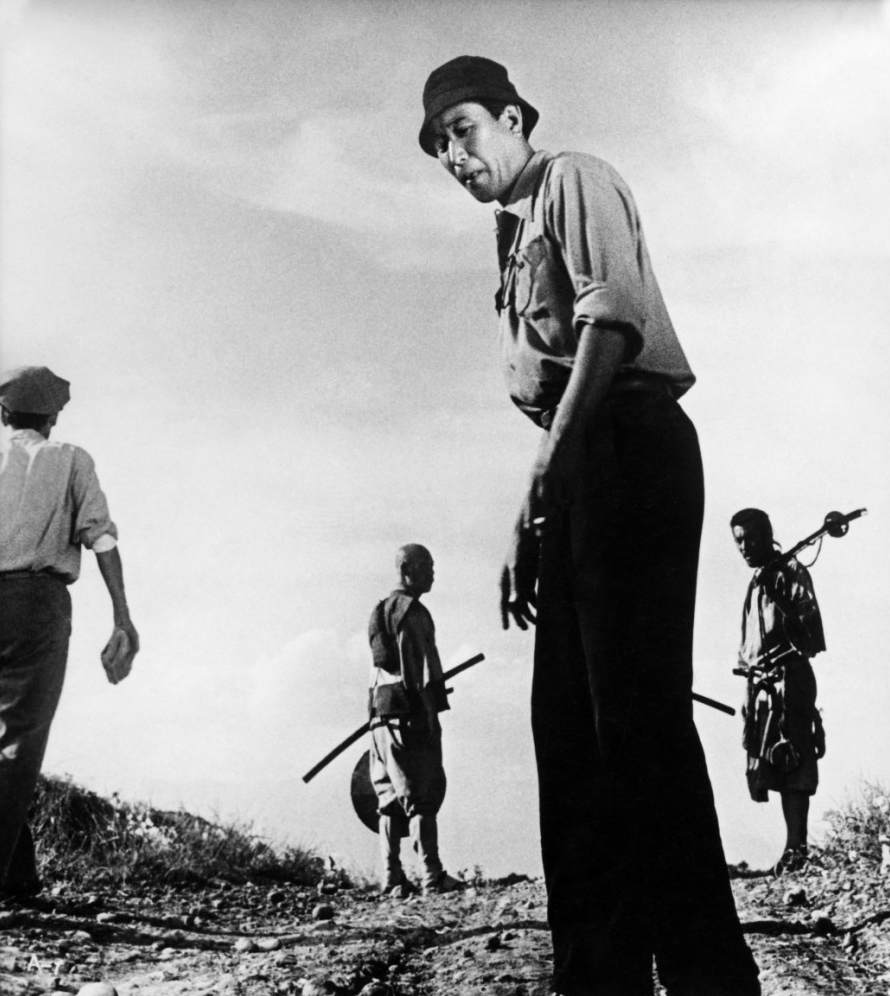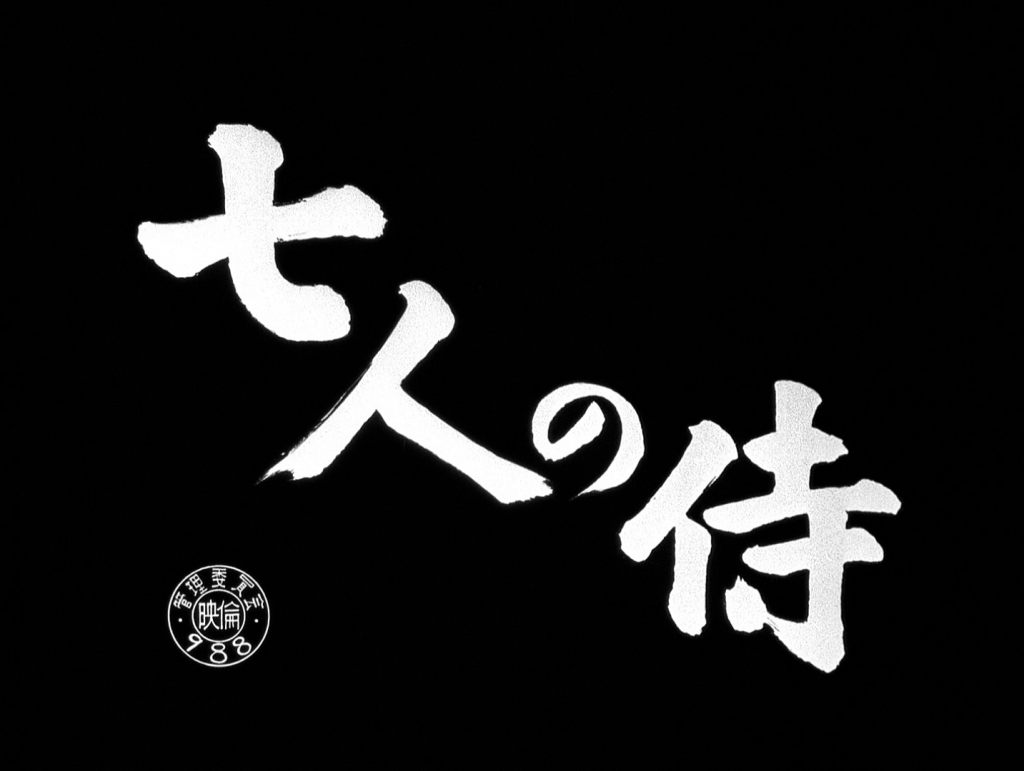
Nordling here.
I've been looking forward to today for several years now. When I started writing for Ain't It Cool on a regular basis, I became friends with one of the programming directors at the Alamo Drafthouse here in Houston, Robert Saucedo. We found that we had similar opinions about a lot of things: movies, politics, and life in general. He was one of the many people inspired by what Tim League has done, as well as the online film writing from AICN and other places, and he found his dream job and stuck with it. I'm hugely envious of him for that. Now he's head programmer for Houston and some other Texas locations (not Austin), and I'm lucky to count him as one of my closest friends.
One of the questions he asked me when we first met is what movie I'd program at the Alamo Drafthouse if I had the opportunity. "SEVEN SAMURAI," I said with little hesitation. "Well, E.T. too, but SEVEN SAMURAI." In 2012, my E.T. screening happened with the Drafthouse's Summer of 1982 event, but I still kept pestering him for SEVEN SAMURAI. Finally, for the film's 60th anniversary this year, Robert told me that we would at last be screening Akira Kurosawa's undisputed masterpiece, and that I'd get to host it.
There's something amazing about seeing your favorite classic films on the big screen. There are details that you miss, even seeing it multiple times at home, and then there's the shared emotion with an audience, especially an audience that hadn't seen the film before. It's a kind of telepathy, isn't it? You can feel the waves of emotion and empathy coming off an audience when a film really, truly connects. It's a drug, it's a church, it's everything wonderful about cinema. It's why I still don't consider myself much of a critic, because I'm very sensitive to that feeling, and it's a feeling that overpowers me quite a bit. I can't remain detached and clinical no matter how hard I try. If I'm not building empathy with an audience, I'm right there with the characters, especially when a movie is firing on all cylinders. It makes it easy to walk through the screen and be there with those characters. So I crave the audience experience very much.
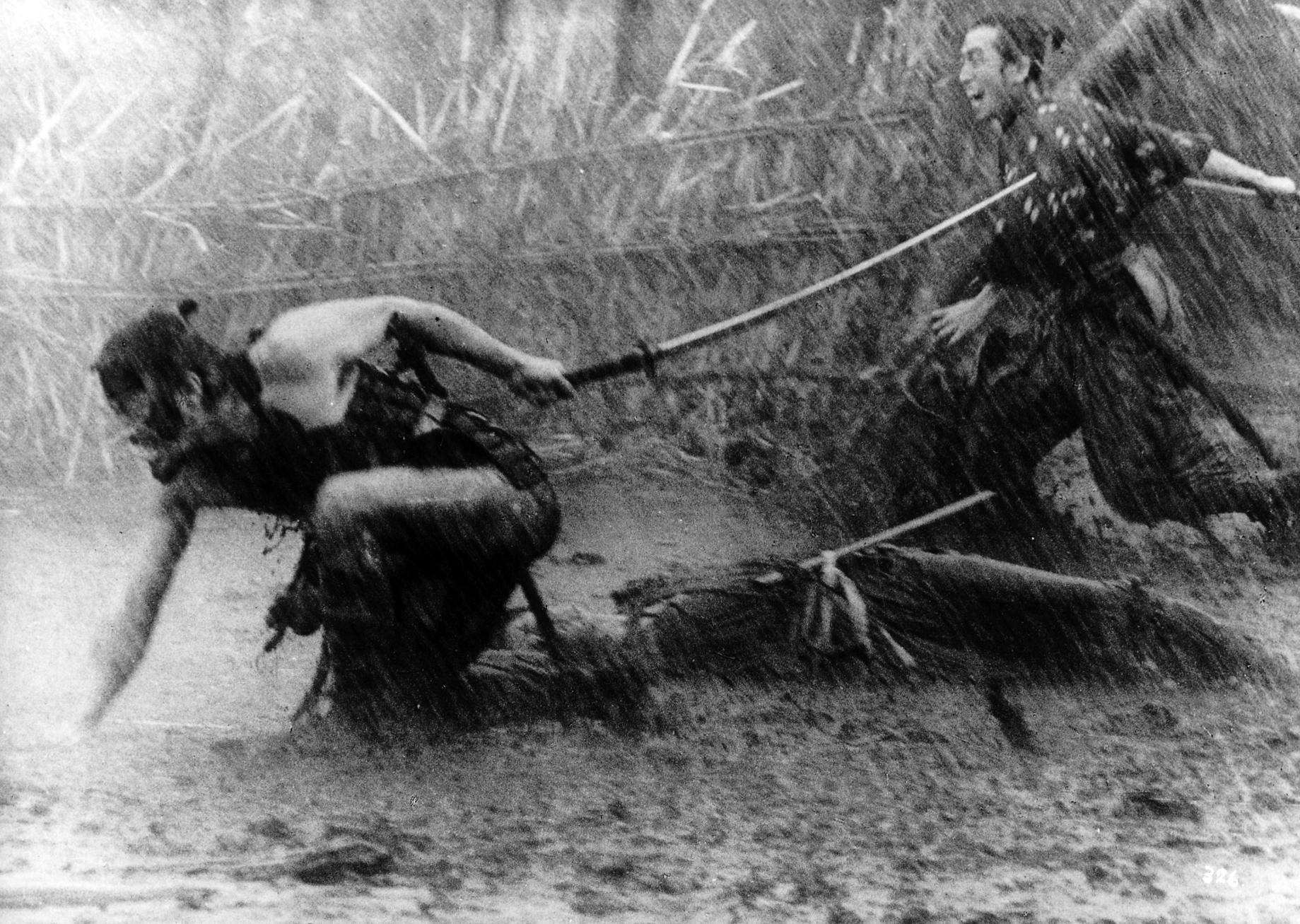
I've seen SEVEN SAMURAI only once on the big screen (I had seen it before), and I remember the audience reacting to the emotional beats of the film, the humor, and especially Toshiro Mifune's Kikuchiyo, the farmer's son who decides to leap above his station and live a life of meaning to him. I wanted that experience again, and it's why I was encouraging people to bring people who hadn't seen the film to the theater. If you've been following my Twitter feed, I've practically been spamming the event, and if some people unfollowed me because of it, well, I make no apologies. I celebrate movies.
SEVEN SAMURAI isn't just the greatest film of all time in my estimation because of how grand it is, it's great to me personally because of how I came to it. While I've loved cinema all my life, it wasn't until my early twenties that I decided to explore it fully. As a teenager I frowned on many of "the classics", because I was young and stupid. I really didn't start diving into great works of film until I set out on my own. I was never a very social creature. So I watched a lot of movies in my twenties. I came across SEVEN SAMURAI, because it was a subject that intrigued me, and because my best friend Michael suggested that we watch it. It was on 2 VHS tapes, split at the intermission, and when it was over, I knew that I'd seen my favorite film of all time. Even twenty years later, I still know it.
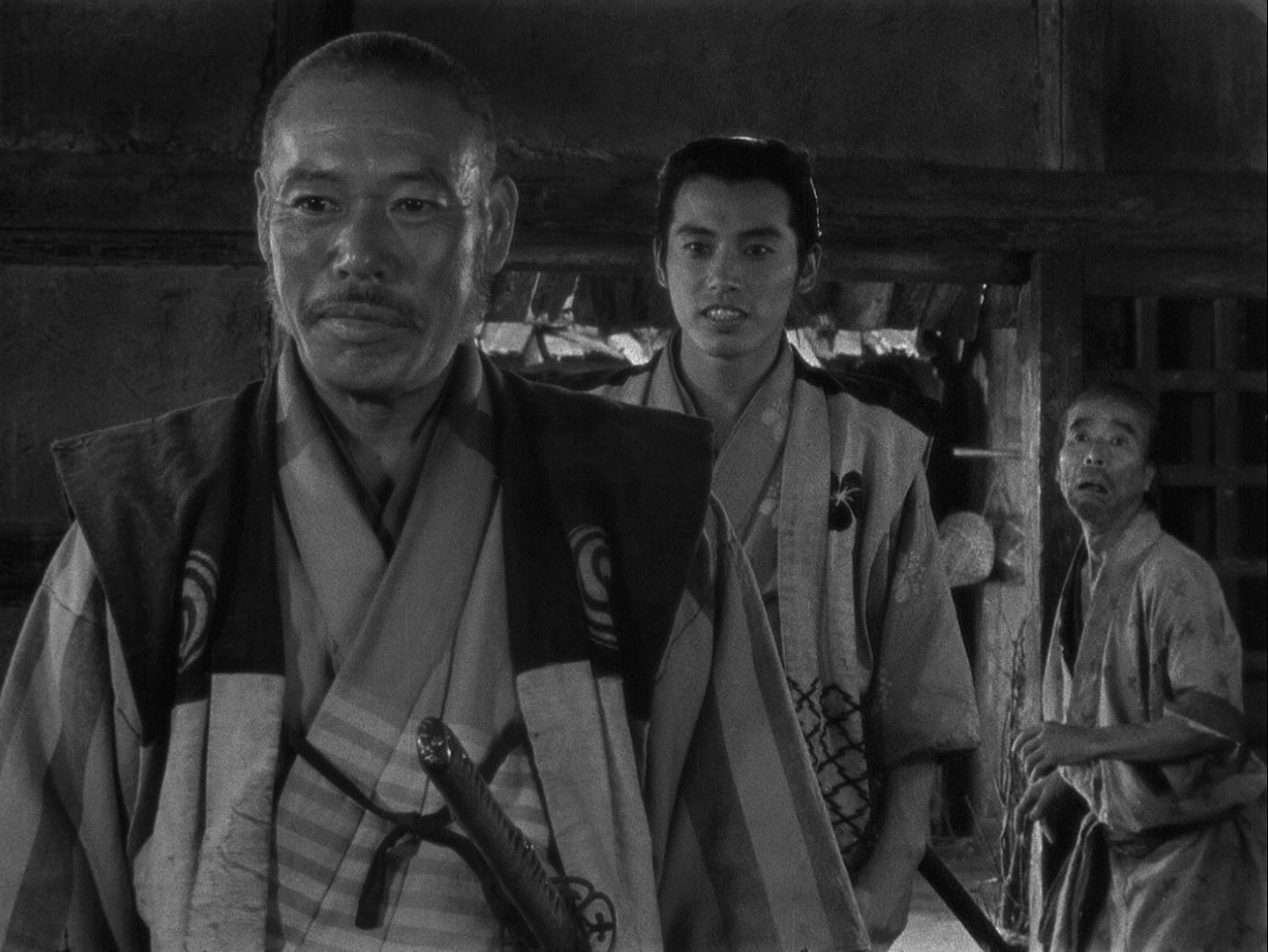
Why does SEVEN SAMURAI affect me so deeply? There's a few factors. Lord knows I've written enough about it over the years. And as favorite films go (and this is no judgment on the film itself), listing SEVEN SAMURAI as your favorite movie is a bit like saying the Big Mac is your favorite hamburger. "Of course it's your favorite movie. I mean, just look at it." Not only is it amazingly directed by Akira Kurosawa, a labor of love that at the time almost broke the studio and took more than a year to finish, but it's surprisingly universal. Perhaps it's Kurosawa's love of John Ford that makes it so - you don't need to know much about Japanese history to love SEVEN SAMURAI. It's always been so fascinating to me how the Western and the samurai film over the years influenced and changed the other, and most of that is due to Kurosawa, and then other Japanese filmmakers emulating him (or contradicting and challenging him). It certainly helps to know about Japanese history and the history of the samurai class, but you don't need to.
SEVEN SAMURAI is perhaps the most accessible Japanese film for American audiences ever made. It's probably because we are well versed on the hero's journey type of storytelling, and the Western genre in particular, but SEVEN SAMURAI lets Western audiences in quite easily. And as it invites, it educates. It shows us a world, not only of historical Japan, but of modern Japan as well, a Japan struggling with finding its place after years of war and horror. Both GODZILLA and SEVEN SAMURAI came out in 1954, a year when Japan was emerging into the world after World War II, figuring out how to navigate its future while coming to an understanding and acceptance of its past. These themes resonate throughout almost all of post-war Japanese cinema, but Kurosawa's films at the time seemed particularly accessible because of his love of Western cinema.
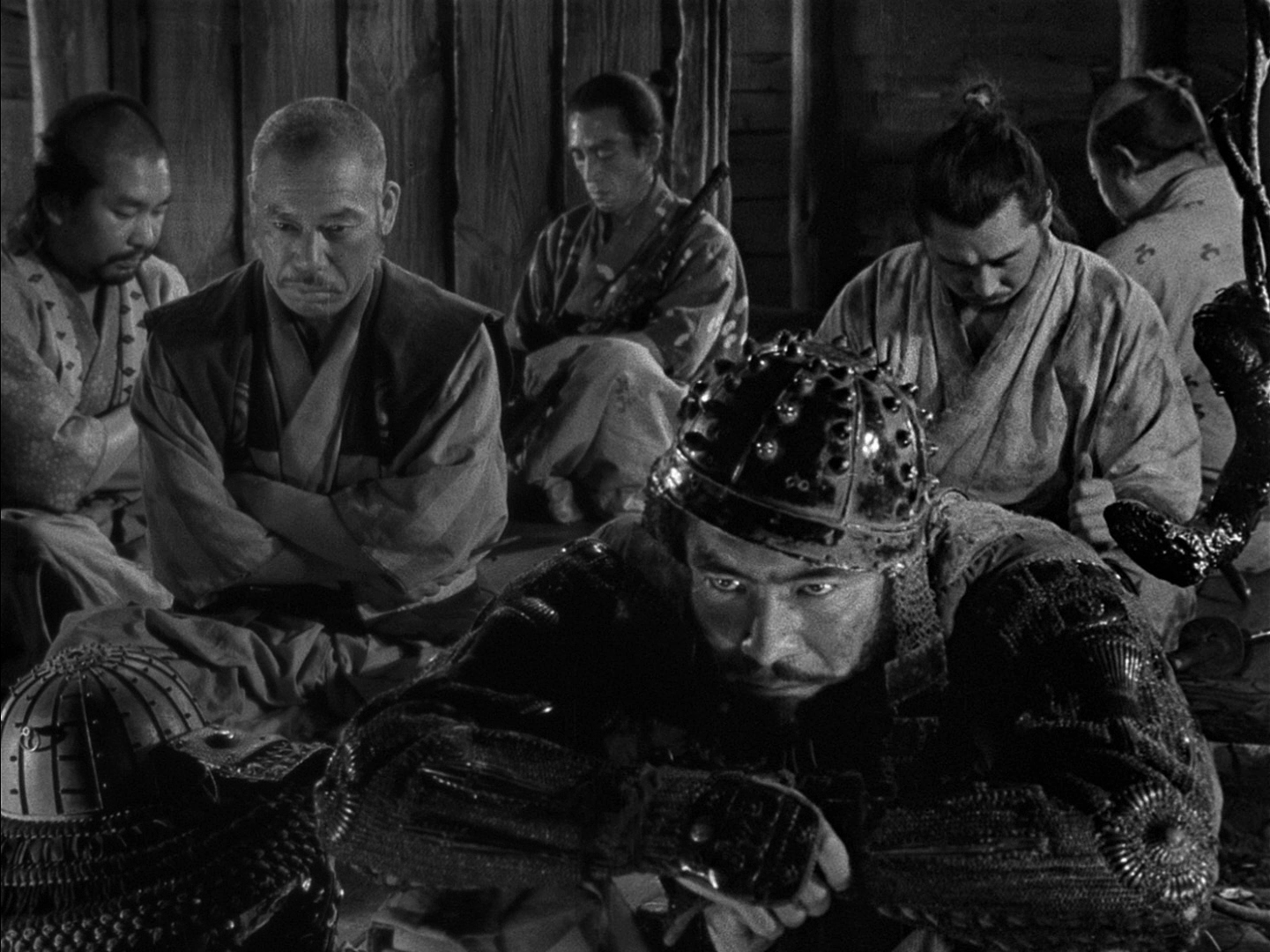
But it's also his characters. Characters like the young Katsushiro (Isao Kimura), born into wealth but wanting to live a meaningful life, finding love where he least expects it. Characters like Kambei (Takashi Shimura), weary of war, and yet knowing that it's all he was really ever good at (even if he lost every battle he ever fought in). Or Kyuzo (Seiji Miyaguchi), a mighty swordsman who may be a master at what he does, but still curious and still seeking meaning. Heihachi (Minoru Chiaki), who spends his days chopping wood and has a great humor about everything, yet bravely joins the fight. Or loyal Shichiroji (Daisuke Katô), who when told that he may die, simply smiles.
For Japanese audiences, these characters may have been fascinating explorations of their country's history. For American audiences, they may have been simple archetypes. But for me, these were my friends. I identified with each and every one of them in some way. All of the samurai felt like facets of myself. I knew of Shichiroji's loyalty, watched in envy and awe of Kyuzo's skill, understood intimately of Katsushiro's naivete, and yearned for victory along with Kambei.
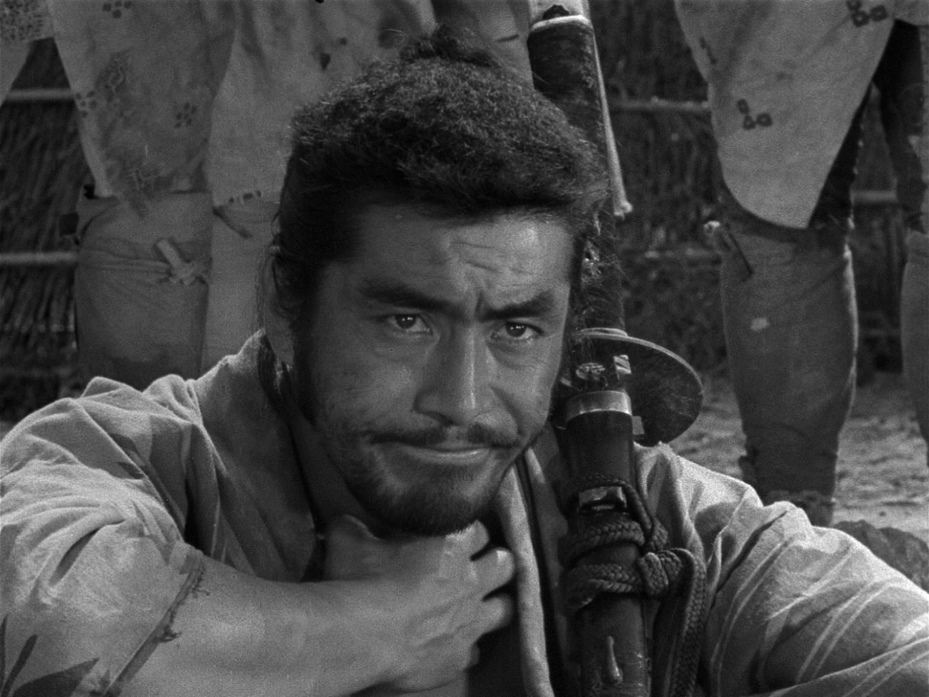
And then there is Kikuchiyo (Toshiro Mifune). We've all felt like a joke among our supposed peers. We all felt out of place, and struggled for those around us to see us as having value. We are not simply the labels that have been put upon us, by society, or school, or through life. Kikuchiyo shows the samurai what they are fighting for, those jaded, wartorn soldiers who have never plowed a field a day in their life. Toshiro Mifune brings real sorrow, palpable joy, and all the range of emotions that anyone could bring, and it's no wonder that Mifune sought this role after Kurosawa suggested him for the role of Kambei (although Takashi Shimura is outstanding as Kambei).
Both Mifune and Shimura together are so wonderful. Shimura, particularly, still stuns, considering that a year before, he played in Kurosawa's IKIRU as an old man, broken by his life. Here, while Kambei is pensive, he stands tall, and it's easy to believe that men would follow him into certain death. I love how Kambei touches his shaven head, feeling for the topknot that is no longer there, the topknot that supposedly defines him as a samurai, which he has removed for the greater good and to save the life of a child. If the old ways cannot save the life of a child in danger, Kambei thinks, then the old ways serve no purpose, and Kambei is a true hero in that he is not beholden to the trappings of the past.
SEVEN SAMURAI is rich with great characters, and not just the samurai. Rikichi (Yoshio Tsuchiya) has lost so much and yet still hopes for a life beyond sorrow. Manzo (Kamatari Fujiwara) wants only what is best for his daughter Shino (Keiko Tsushima), but Shino is young and also yearns for more. With rich dialogue and multifaceted characters, SEVEN SAMURAI is truly epic storytelling in ways that seem to be forgotten now, because these characters do matter amongst all the action and fighting.
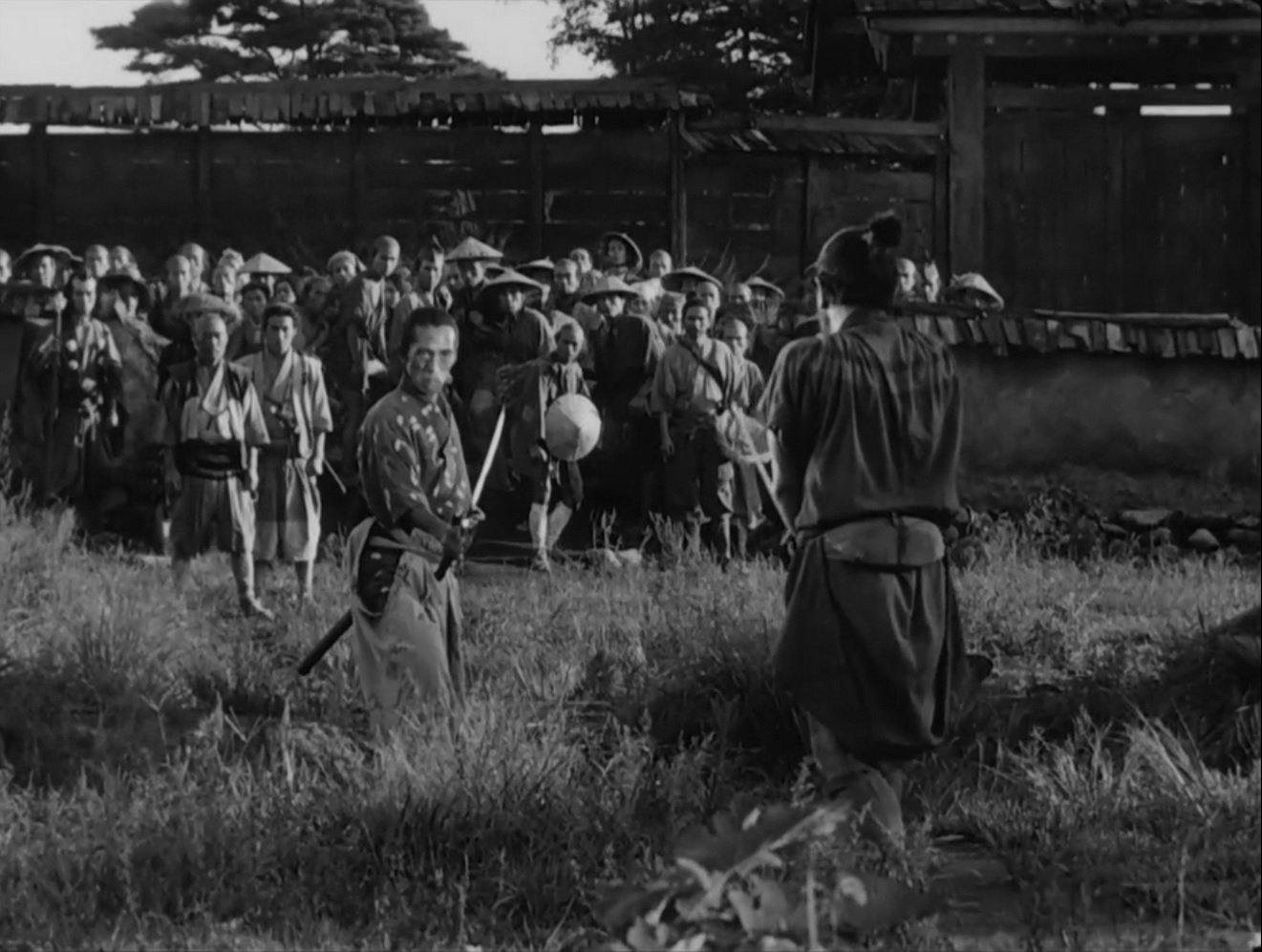
And what marvelous action it is. Akira Kurosawa changed everything. Everything has motion, but Kurosawa doesn't shoot it chaotically or frenetically. We know where everyone is at all times, and the camera placement and movement gives us tons of information without being intrusive. I wish every young filmmaker would watch SEVEN SAMURAI and pay attention to this. I'm getting exhausted watching modern action cinema, where if the camera isn't shaking, then it's placed in a position where it's difficult to understand what's happening at the best of times, for the sake of "immediacy." Too many directors want to create intensity inside the lens when they should be concentrating on creating the intensity with the characters and the situation. The camera is God, the camera is grace, and while we may be watching from outside, our hearts and minds are with the characters if the director's done his job properly.
So much of SEVEN SAMURAI is set-up, but it's so meticulously done that when the action does happen we are truly, deeply invested. That's what makes great action cinema resonate - not the action itself, but what the action MEANS. Think about it. The greatest action scenes in history are so great because the stakes have been set up appropriately, and the director wisely paid attention to the geography of the scene. That's why movies like DIE HARD are so beloved. Everything builds in a natural progression, and we are excited for how the film will change after the action is done. Kurosawa is a master of that.
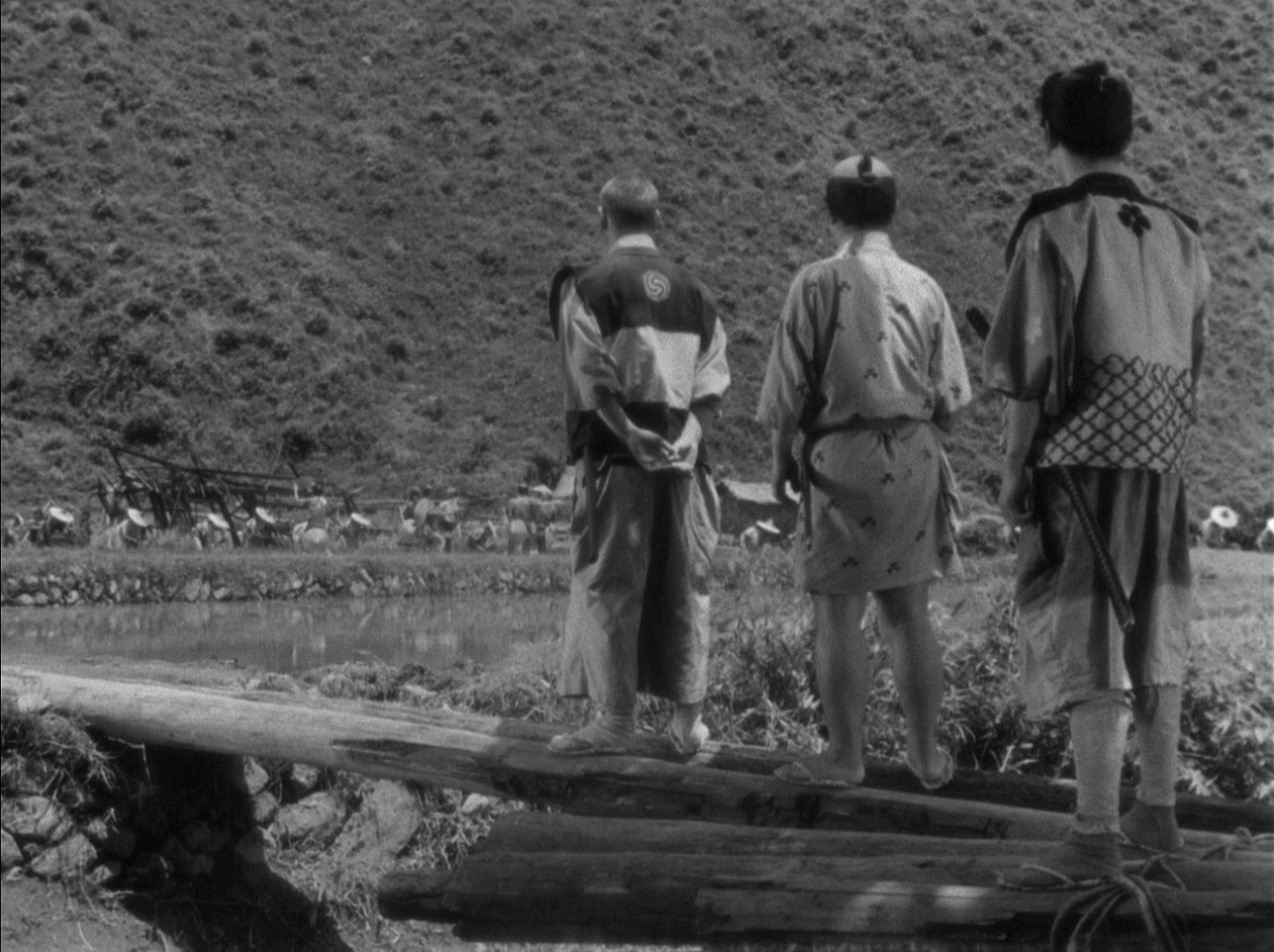
Fumio Hayasaka's score is transcendent. I love how it moves from whimsy, to sorrow, to grandiose in the space of seconds. It's the template score for every action film made since, melodic and rich, and yet so very Japanese, with pounding drums and tension, and yet delicate when the mood requires it to be. Sadly, this would be Kurosawa's and Hayasaka's last collaboration, as Hayasaka passed away a year later. But his film scores still stand the test of time, especially with his work with Kurosawa.
What more can I write? Volumes, I guess, but it all reads like gushing. You should seek out Criterion's amazing Blu-Ray, which dives into the history of the film, of it's place in cinema, and plus, the transfer is beautiful. If you've read this far down, you likely have the Blu-Ray already. But if you don't and have never seen the film, I assure you, it's probably the best blind purchase you can ever make.
This year marks the 60th anniversary of SEVEN SAMURAI, and while cinema has moved on like it always will, the lessons of SEVEN SAMURAI, for filmmakers and audiences alike, still stand. Compelling stories can be both epic and intimate, both emotionally rewarding and technically brilliant. Although there have been so many great films since SEVEN SAMURAI, beloved by generations, for me SEVEN SAMURAI exemplifies what cinema is about - that cinema really can change the world. It can entertain, enlighten, move, and ultimately, expand our world. There has never been a film since, for me, that has equaled that. I can't wait to sit down in that darkened church today, my friends by my side, and hopefully with an audience full of people who have never experienced it before. (And, if you're in the Houston area, you can come too! Tickets still available.) It's that drug I chase every time I go to the movies. For me, none of it would be possible without SEVEN SAMURAI. Thank you, sensei.
Next week... a blind swordsman takes center stage.
Nordling, out.
